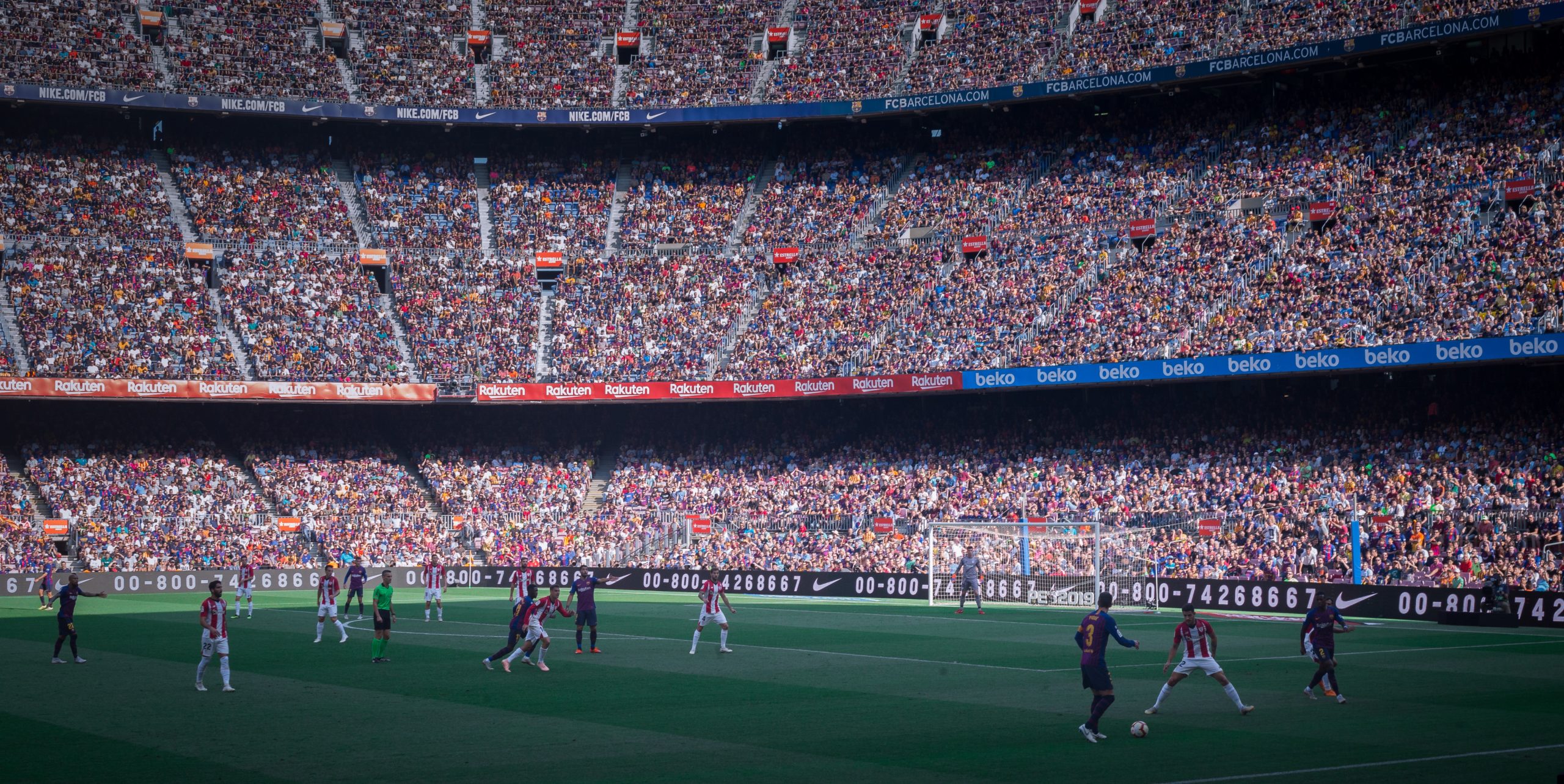

RECOMMENDED READING
To Americans, the idea of a professional sports league with the same slate of teams competing each year is normal. In Europe, it might lay bare how an unthinking application of market logic to cherished traditions and institutions can kill the golden goose.
To the extent that anyone in the New World can name any European “football” clubs, it would be a handful of blue-chip brands – Manchester United, AC Milan, Barcelona FC, Liverpool. They each compete in their own national league, and the top performers advance to the UEFA Champions League, an annual mini-Olympics that routinely beats the Super Bowl for the highest-viewed annual sporting event in the world. Of course, if a team doesn’t perform well enough on the pitch, it will miss out on a spot in the lucrative cross-national tournament.
Those four aforementioned teams, plus eight more from Italy, the UK, and Spain have announced their intention of breaking away from their national leagues to form a “Super League,” in which the same set of marquee teams would compete every year without fear of missing out on a big payday. The most famous teams, with the deepest pockets, the highest-paid stars, with a guaranteed payday? What’s not to love?
Well, plenty, and not just if you’re a beneficiary of the current system. UEFA and the national leagues rightly fear losing relevance (and broadcasting fees) if the Super League takes off. It doesn’t help matters that the upstart league is being funded by JPMorgan Chase, inflaming the sense that Americans are ruining tradition simply to make a quick buck.
But why should we care which billionaire pockets the rights fees of the Champions League or Super League broadcasts? (Indeed, red-blooded Americans may wonder why we should care about European football at all, aside from counting down the days to the second season of Ted Lasso.)
Because the UEFA Champions League, and the national systems it is built atop of, are at least vestigially attached to soccer’s origins. Theoretically, any local team can work its way up, promoted to a higher level after a good season or relegated to a lower one after a poor showing. Liverpool and Manchester City are (or, are supposed to be) specifically tied to the parts of the country they represent, playing other English teams for supremacy in the nation, not simply matching off against international heavyweights on a regular basis (it doesn’t seem to have dawned on the Super League organizers that watching Manchester United play Real Madrid is must-see television precisely because of its rarity, and making it a regular occurrence would cheapen the product.) The thrill that comes from seeing an underdog knock a heavyweight out of a qualifying tournament would be gone, and the rich would get richer.
Some would welcome this. Perhaps it’s worth removing the gauzy veil of nostalgia and laying bare the fact that, as Jerry Seinfeld famously said, those screaming fans setting off firecrackers outside Emirates Stadium are essentially cheering for laundry. A European Super League would make that self-evident and irrevocable, even as team valuations may continue to skyrocket. Sports, after all, are capitalistic enterprises, as Rob Manfred’s incessant tinkerings or the National Football League’s expansion of its regular season (against the wishes of many players) can demonstrate.
But with every step away towards a pure market logic and away from physical communities and lived-in traditions, the sporting world will find that the magic and allure of what has made them so compelling start to disappear. A Justice League-style conglomeration of recognizable brands might sell merchandise, but will find it difficult to work its way into the hearts of young soccer players. Making top-tier soccer teams a version of the consultant class who are “based out of London” while hopscotching from one European capital to the next would destroy any relationship between the team’s origins and the money flowing in.
There are two countries whose premier teams notably refused to join forces with the Super League. The most famous French team, Paris St.-Germain, is largely owned by the Qatari government, who was responsible the ill-advised and corrupt agreement to host the World Cup in that nation next year. FIFA, soccer’s global governing body, has expressed its disapproval of a Super League, seeing it as a threat to the long-term stability of the game (meaning, their profits), and the Qataris know not to upset the apple cart. Germany, too, has none of its leading teams pledged to the Super League, in large part because German teams are required to be majority-owned by the fans, who care more about preserving the integrity of the Bundesliga and German leagues than maximizing shareholder value.
An ongoing revolt against the Super League, especially among English Premier League fans, may doom this specific iteration, but the idea will be sure to rear its head again. The French and German examples suggest a way forward for combatting the tyranny of market logic from destroying the nation-based system of international soccer – intentionally align long-term incentives to combat short-termism, or give local communities more agency to decide the direction of the institutions that matter to them. If those fail, government action may be threatened, as in the U.K.
One needn’t have ever stepped on a soccer pitch to apply those lessons to other battles against keeping alive certain institutions, such as families, civic institutions, or labor practices, even if they leave some dollars or Euros on the table.
Recommended Reading
The Decline and Fall of NASCAR
America’s most Southern sport has betrayed its own fan base, writes American Compass’s Wells King in this cover story.
The New Fusionism We Need
Almost 60 years ago, Frank Meyer formulated “fusionism.” He explained why 1950s anti-communists, free-market proponents, and social conservatives could unite in a coherent coalition.
The Fed Soc Debate Turns Inward
American Compass coalitions director Wesley Hodges discusses the developing debate within the Federalist Society about the roles and potential threats of corporate and government power.










